Thousands of Ethiopians took part in planting a record-breaking number of trees in the span of 12 hours on Monday. At the urging of the country’s Prime Minister Abiy Ahmed, Ethiopians of all ages joined in the national Green Legacy campaign to reforest the country and combat climate change. Ethiopia’s citizens shot far past their initial goal of 200 million trees, planting a staggering 353,633,660 tree seedlings in the 12-hour period.
Twenty-five-year-old Feben Tamrat says she joined in Monday’s planting after watching ads about the campaign from the prime minister. “I was very sure that I don’t want to miss out, and I want to put my legacy as well on the ground,” Tamrat told NPR.
The record-breaking tree planting is just a small part of the nation’s Green Legacy initiative. CNN reports the campaign aims to plant a total of four billion trees between May and October of this year. Ethiopia is among more than two dozen African countries that have pledged to bring 100 million hectares of land in Africa into restoration by 2030 through the African Forest Landscape Restoration Initiative.
Just over a century ago, roughly one-third of Ethiopia’s land was forest. But agriculture, drought, and soil erosion in the last hundred years have shrunk forested area down to less than 4 percent of the country’s total land.
There’s some evidence that Ethiopia’s national reforestation effort could help combat climate change. Earlier this month, a study estimated that restoring lost forests across the globe could remove two-thirds of all the greenhouse gas emissions that have been pumped into the atmosphere by human activities. Critics of the massive tree planting plan have pointed out, however, that, in the past, similar efforts have introduced damaging non-native plant species and further degraded landscapes.
At the very least, Ethiopia’s tree planting engaged citizens in the fight against climate change in a record-breaking show of unity and optimism. “This showed us how much we can be strong when we come together and when we put our heads together to do something,” Tamrat told NPR.

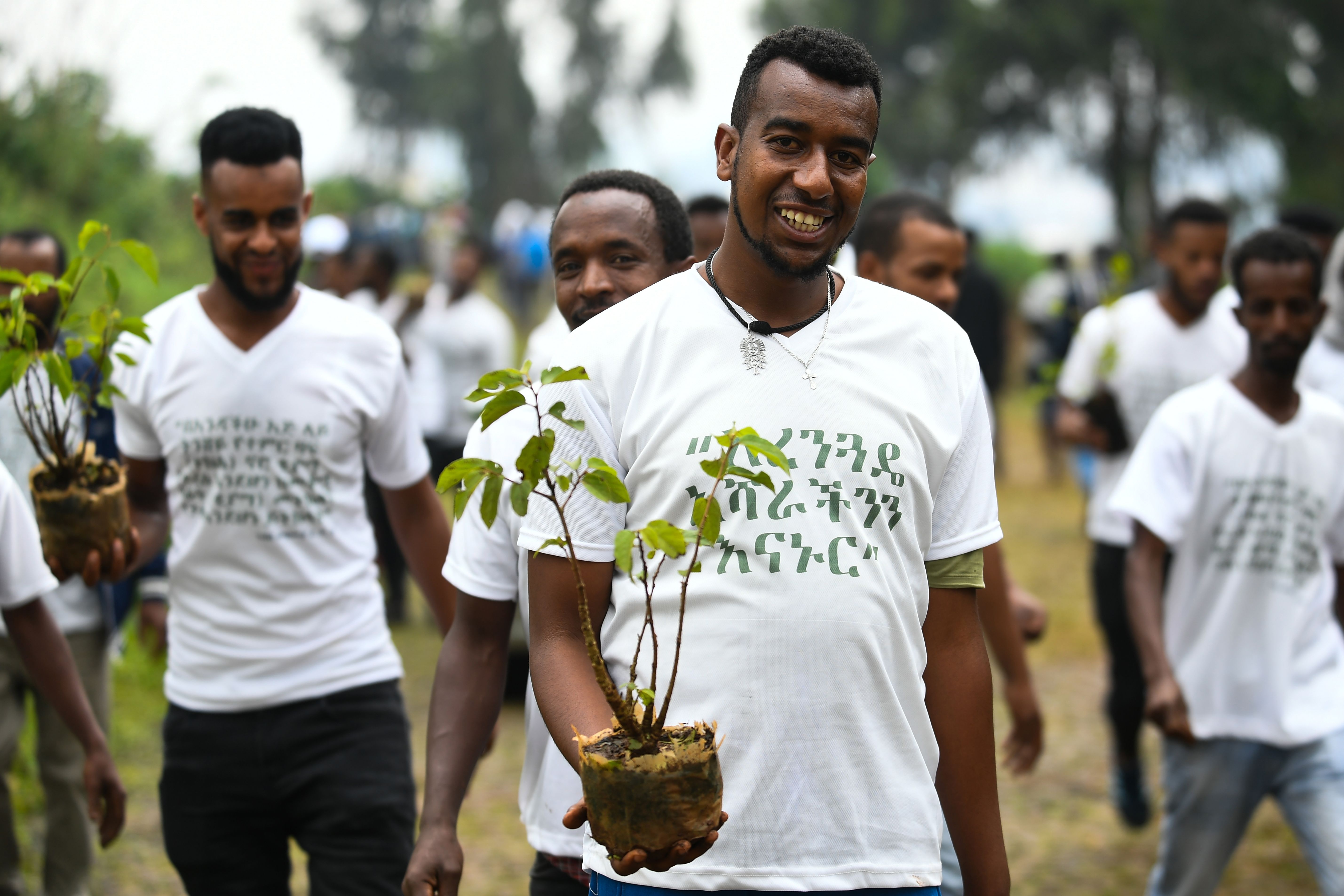
(Photo: Michael Tewelde/AFP/Getty Images)
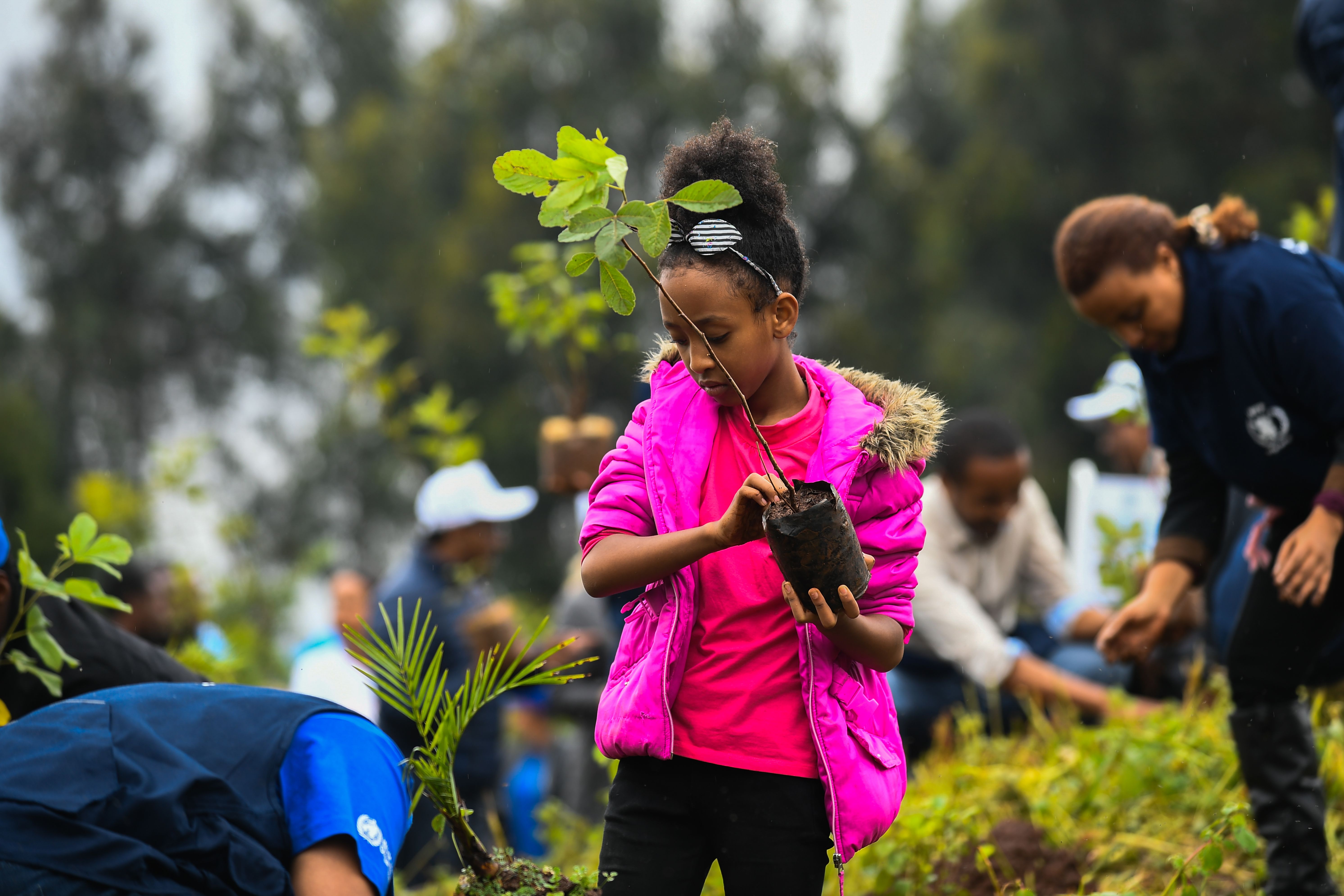
(Photo: Michael Tewelde/AFP/Getty Images)
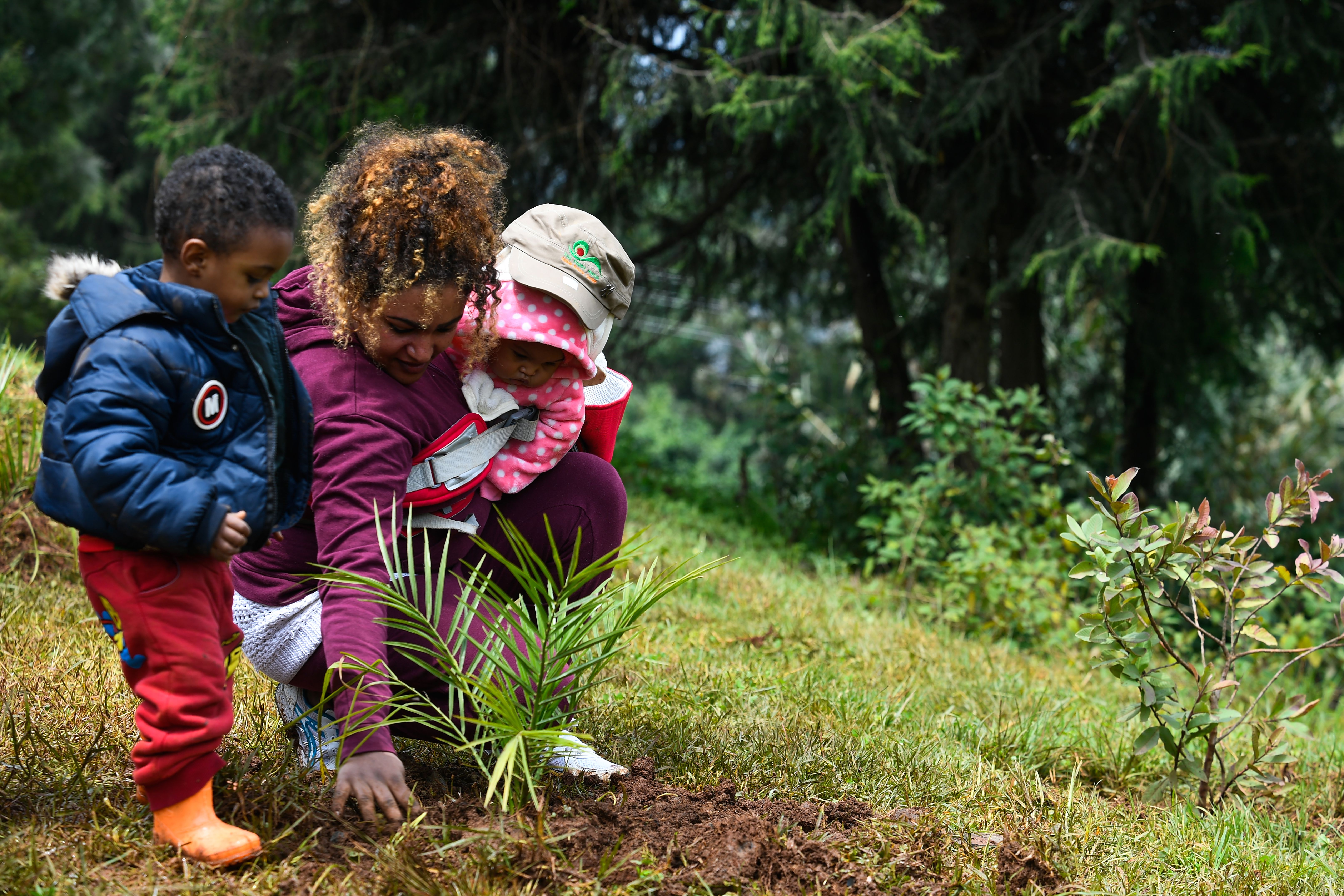
(Photo: Michael Tewelde/AFP/Getty Images)
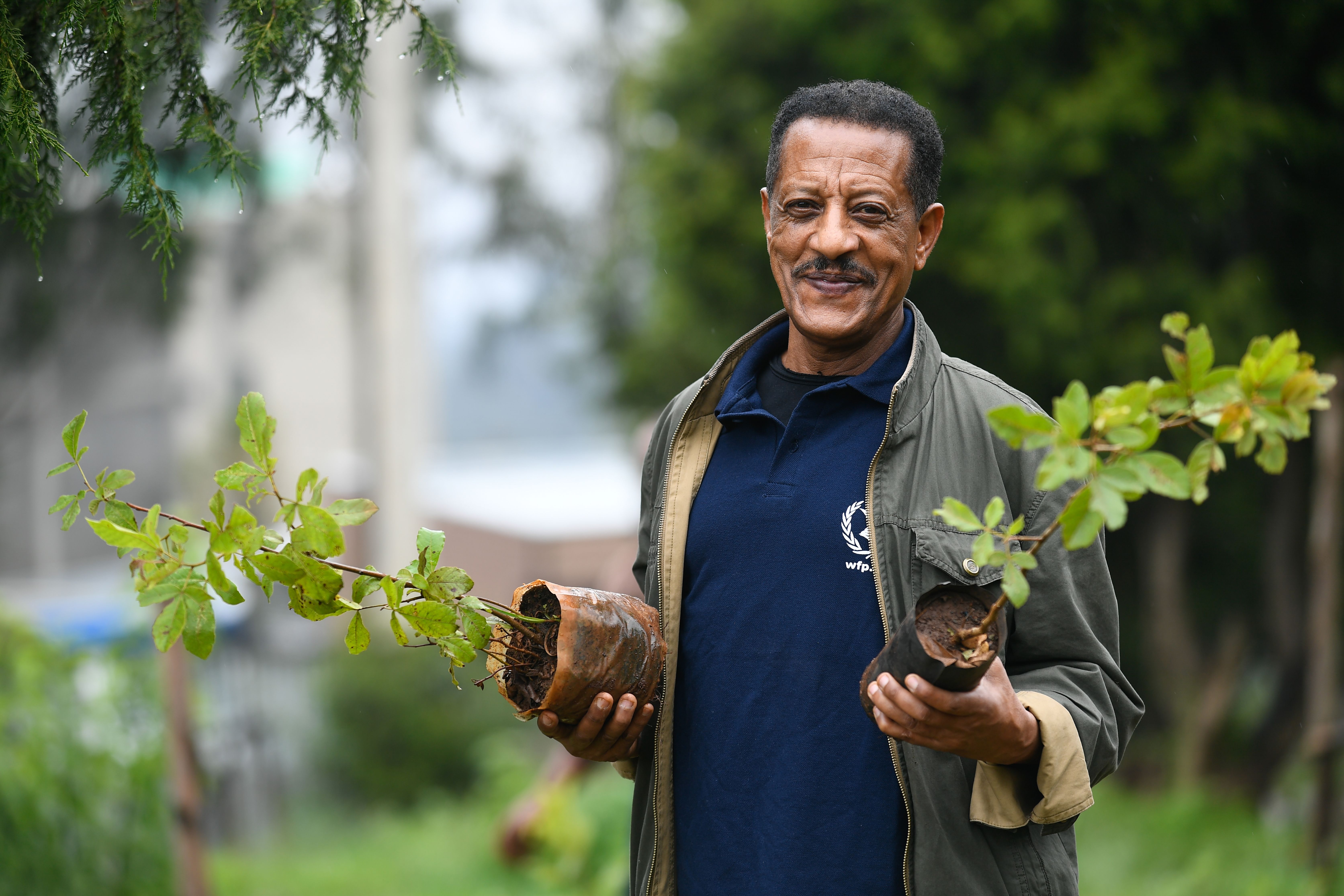
(Photo: Michael Tewelde/AFP/Getty Images)
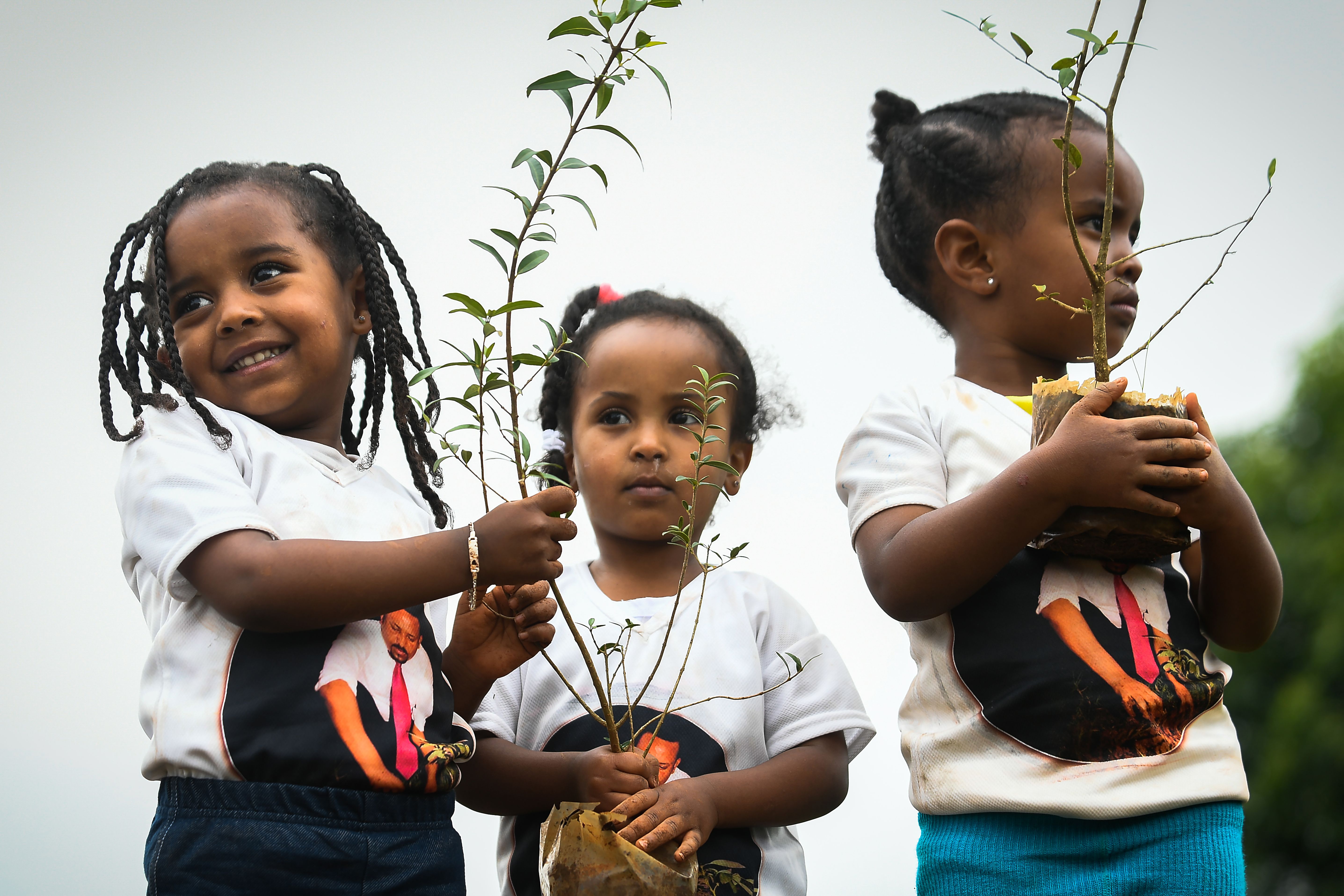
(Photo: Michael Tewelde/AFP/Getty Images)




